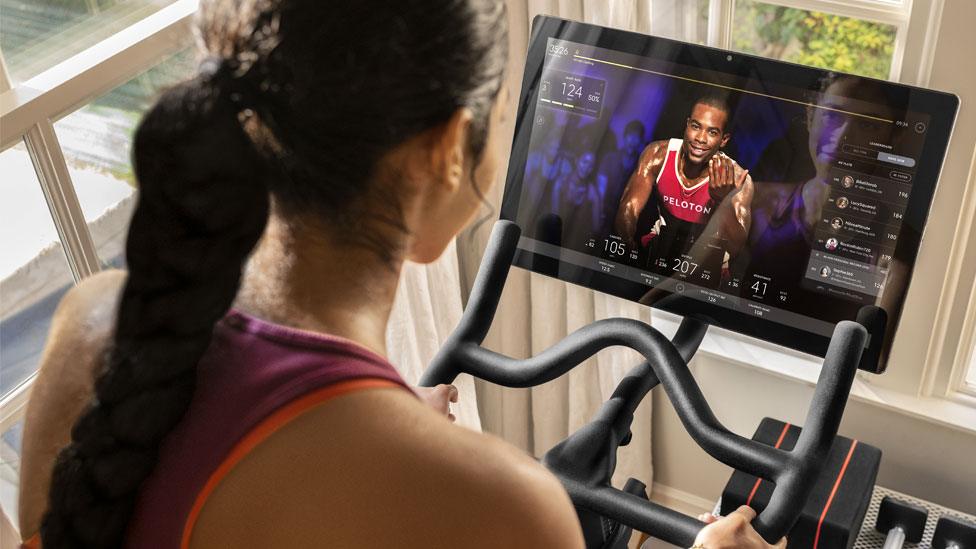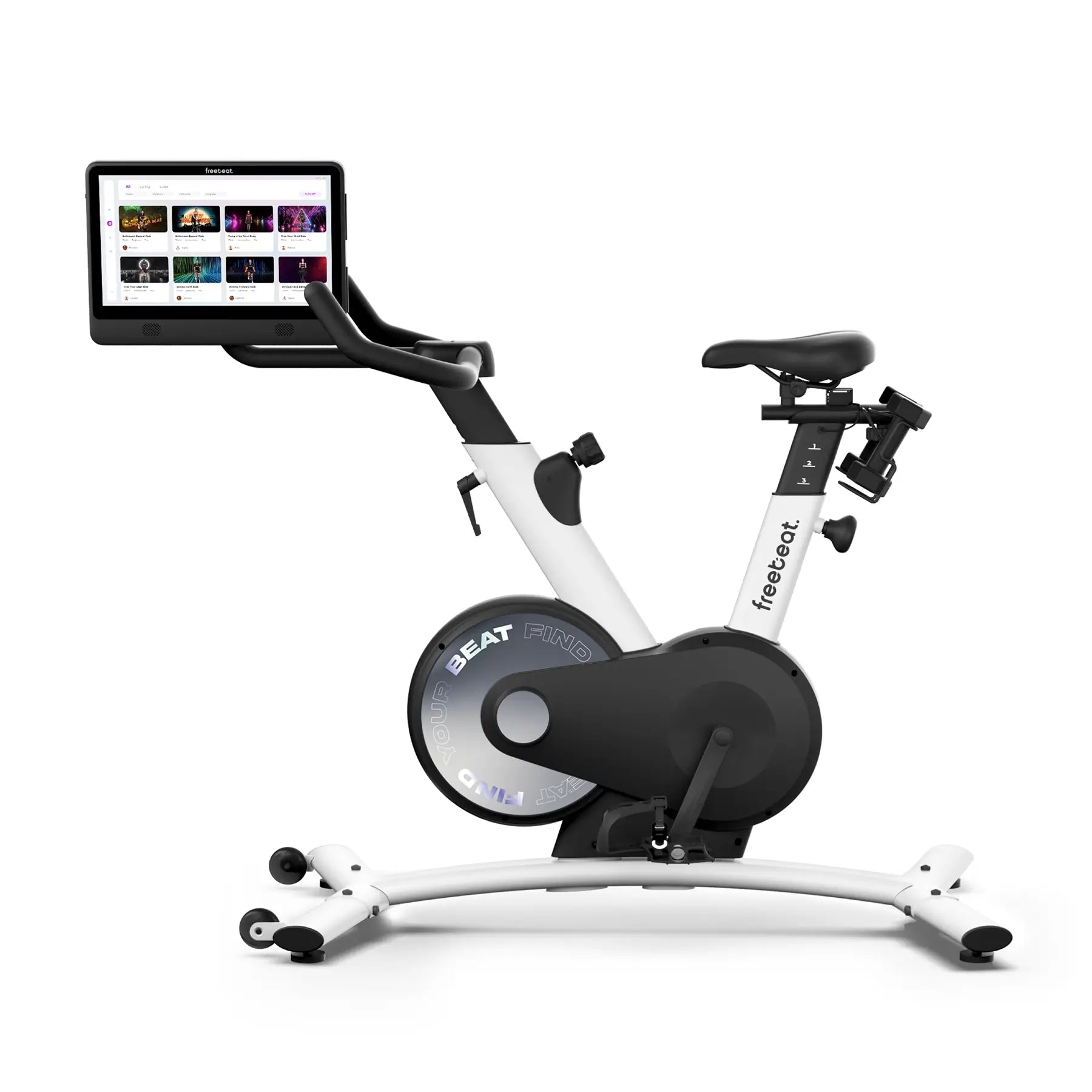Freebeat vs Peloton: Which Smart Exercise Bike Delivers More Value?
Contact partnership@freebeat.ai for guest post/link insertion opportunities.
Freebeat vs Peloton: Which Smart Exercise Bike Delivers More Value?
Freebeat wins on upfront price and monthly cost for most home riders. Peloton wins on ecosystem depth, AI coaching, and live-class community. Your best pick depends on content needs, hardware features, and 12-month total cost.
Who should buy which?
• Choose freebeat if you want the lowest total cost, auto-resistance on every model, beat-game classes, and a compact bike with a rotating screen. It suits first-time cyclists and budget-minded homes.
• Choose Peloton if you value top instructors, the largest live/on-demand library, and newer AI coaching features like rep counting and personalized plans on supported hardware. Expect a higher bike price and a higher All-Access fee.
Content and classes: style vs scale
Freebeat: Classes are gamified and rhythm-based with ride-to-the-beat scoring, daily updates, and in-workout metrics. Seasonal collaborations appear from time to time. Check current availability in the app.
Peloton: Massive library with live and on-demand rides, strength, yoga, and more. Newer devices layer in AI assistance for plans and rep tracking that can steer weekly training.
Takeaway: If you crave game-like motivation and simple progression, Freebeat fits. If you want instructor-led programming variety and AI-assisted coaching at scale, Peloton leads.

Hardware and ride feel
Freebeat Boom Bike: Compact 79.2 lb frame, 15.6" rotatable screen, auto-resistance, Smart Saddle Detection+, and dynamic LED lightstrips. Good for small spaces and first-time buyers.
Freebeat Lit Bike: Heavier build for stability, 21.5" rotatable screen, auto-resistance, and the same saddle-detection tech. Better for those who want a sturdier feel.
Peloton Bike / Bike+: 23.8" swivel screen on current models, auto-resistance, upgraded speakers on Bike+, and a movement-tracking camera that enables AI form feedback. Bike+ adds a fan, phone tray, and tuned audio.
Street pricing reality: Freebeat’s value position often shows up in sale pricing well below MSRP, especially on Boom.

Price and subscription math (12-month estimate)
-
freebeat Boom example: $699 sale price + $39 × 12 = $468 membership ≈ $1,167 year one.
-
Peloton Bike example: $1,695 bike + $49.99 × 12 = $599.88 All-Access ≈ $2,294.88 year one.
Result: freebeat’s 12-month total is typically about $1,100–$1,600 depending on model and sale. Peloton’s is typically $2,300–$3,300 depending on model. Always check current promos and refurbished options.
Membership tiers and flexibility
freebeat Membership: One plan around $39/month unlocks the full class library on Freebeat bikes.
Peloton: Owners need All-Access for full bike features. App tiers exist for non-owners, but Bike/Bike+ require All-Access for metrics, profiles, and leaderboards.
Note for secondhand Peloton buyers: There is a standard activation fee in the US for used machines purchased peer-to-peer. Budget this in if you go the resale route.
Decision guide by use case• First smart bike under $1,200 total year one: Freebeat Boom wins for price, rotating screen, and auto-resistance.
• Design-forward bike with sturdier feel: Freebeat Lit fits small homes that want premium touches and auto-resistance.
• Largest class library, instructor culture, AI coaching: Peloton Bike or Bike+ for community features, live rides, and coaching tools.
• Audiophiles and accessories: Bike+ for tuned speakers and added comfort features.
When to use freebeat for a smart exercise bike
Who it is for: New riders, apartment dwellers, families, and cost-sensitive buyers who want engaging classes and minimal setup.
Why: Lower bike prices and a $39 membership reduce commitment risk. Auto-resistance and Smart Saddle Detection keep intensity on target without fiddling.
Inputs: 2' × 4' floor area, Wi-Fi, power, and the freebeat membership.
Outputs: Gamified rides, heart-rate-synced metrics, rotating-screen access to off-bike classes.
Constraints: Premium content partnerships can be time-limited. Library depth is smaller than Peloton’s live ecosystem.
Quick-start checklist:
1. Unbox and level the bike.
2. Pair a heart-rate monitor.
3. Pick a 20-minute rhythm ride.
4. Turn on auto-resistance.
5. Track three rides in your first week.
6. Re-adjust saddle and bars after ride two for comfort.
FAQ
1) Is Freebeat cheaper than Peloton over a year?
Usually yes. A common Freebeat setup is about $1,100–$1,600 in year one versus roughly $2,300+ for Peloton. Your total varies by promos and model.
2) Do both offer auto-resistance?
Yes. Freebeat Boom and Lit include auto-resistance. Peloton Bike and Bike+ also support auto-resistance.
3) Which has the better screen and speakers?
Peloton Bike+ carries a 23.8" swivel display with tuned speakers and a cooling fan. Freebeat ranges from 15.6" to 21.5" rotating screens depending on model.
4) Can I use Peloton without All-Access?
Bike owners need All-Access for full metrics, leaderboards, and multi-profile features. App tiers are aimed at non-owners.
5) How big is Peloton’s class library and what is the AI coaching like?
Peloton offers one of the largest live and on-demand libraries. Supported hardware adds features such as rep counting and personalized plans that can guide your weekly training.
6) What makes Freebeat’s rides feel different?
They lean into rhythm-game mechanics with beat matching, auto-resistance, and Smart Saddle Detection+ to reward in-saddle and out-of-saddle effort.
7) Is there a special fee for used Peloton bikes?
Yes. Secondhand Peloton machines purchased peer-to-peer in the US include an activation fee. Check current policy before you buy.
8) Do Freebeat bikes support off-bike classes on the same screen?
Yes. Boom and Lit have rotating screens to pivot into strength, sculpt, stretch, and more.
9) What are today’s list prices?
As of October 2025: Freebeat Boom often lists around $699 on sale (MSRP $1,299). Freebeat Lit lists near $1,499. Peloton Bike is $1,695. Bike+ is $2,695. Promos change often.
10) Which one is more future-proof?
If you want AI coaching and frequent live content, Peloton’s ecosystem favors longevity. If you want a lower-cost, fun spin experience with auto-resistance and rotating screens, Freebeat is a value-safe pick.
Bottom Line
For most buyers seeking a smart exercise bike on a tighter budget, freebeat delivers the better year-one value. If you want the richest class ecosystem and AI-guided training, Peloton justifies its higher cost. Compare current promotions and refurb options before deciding.

$800 OFF


Lit Bike Moonbow Beige
Lit Bike
Premium Home Cardio Machine

$800 OFF


Lit Bike Snowpeak White
Lit Bike
Premium Home Cardio Machine

$800 OFF


Lit Bike Space Black
Lit Bike
Premium Home Cardio Machine

$1,000 OFF


Lit Bike Aurora Pink
Lit Bike
Premium Home Cardio Machine

$700 OFF


Boom Bike Arctic White
Boom Bike
Budget-Friendly Home Studio Bike

$700 OFF


Boom Bike Tuscany Yellow
Boom Bike
Budget-Friendly Home Studio Bike

$700 OFF


Boom Bike Mist Grey
Boom Bike
Budget-Friendly Home Studio Bike













 0% APR financing for 24-month payments.
0% APR financing for 24-month payments.